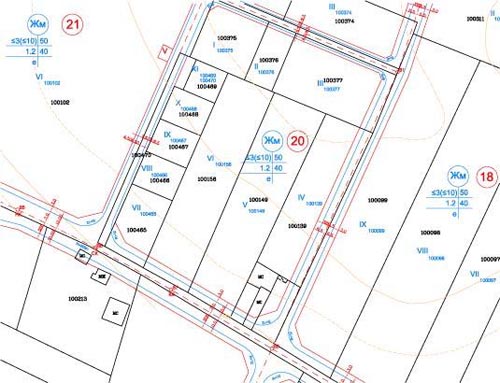A class action launched by land surveyors who claimed copyright infringement against Teranet — the private sector company that manages Ontario’s land registry system — has been dismissed.
 The long-running dispute between surveyors and Teranet considered seven common issues but it took only one — whether the copyright of the plans of survey belong to the province — to decide the case in Teranet’s favour.
The long-running dispute between surveyors and Teranet considered seven common issues but it took only one — whether the copyright of the plans of survey belong to the province — to decide the case in Teranet’s favour.
The class action in Keatley Surveying v. Teranet was filed in 2007, and was certified on appeal in 2015. Both sides moved for summary judgment on the common issues and the decision was issued May 6 in Ontario’s Superior Court.
Keatley Surveying brought the action on behalf of about 350 land surveyors in private practice in Ontario whose surveys were scanned and copied into Teranet’s digital database and made available online. By copying and selling their plans online, the surveyors claimed Teranet was breaching their copyright and unlawfully appropriating for itself the benefit of the class members’ professional land survey work.
The class members’ complaint was that a for-profit third party inserted itself between the government and users of land registration services and “reaps substantial profits at the expense of class members.”
Justice Edward Belobaba decided in favour of Teranet and the class action was dismissed on common issue two, which asked whether the copyright in the plans of survey belongs to the Province of Ontario under s. 12 of the Copyright Act, as a result of the registration or deposit of the plans of survey in the land registry office.
Teranet argued the plans of survey in question were “prepared or published by or under the direction or control” of the province and therefore copyright belongs to the Crown.
Belobaba said in his view “ . . . statutory provisions make clear that when plans of survey are registered or deposited at the land registry office, the province takes ownership of the property in these works which includes the right to make copies.”
“In my view, s. 12 of the Copyright Act, primarily a ‘term of copyright’ provision, clarifies Crown copyright but does so ‘without prejudice to any rights or privileges of the [provincial] Crown.’ Thus, the provincial ‘property of the Crown’ provisions already discussed, and s. 12 of the federal Copyright Act, can live together and operate concurrently,” wrote Belobaba.
“In any event, the answer to Common Issue 2 is ‘yes.’”
As both sides agreed that was the determinative issue then there is no copyright infringement “and that is the end of the class action.”
The next step could be an appeal to the Court of Appeal, but plaintiff lawyer Garth Myers would not comment on whether an appeal will be pursued.
“We were successful on a couple of the common issues and we’re quite pleased we succeed on the Crown copyright issue and assignment issue. We got caught on the second part of common issue two, which was determinative. We don’t agree with the judge’s finding on that issue. The issue that remains is whether the provincial statutes provide for copying that takes away copyright of land surveyors,” said Myers, an associate with Koskie Minsky LLP.
Belobaba decided Teranet was entitled to costs and while it would have sought $200,000, he indicated a reasonable costs award is “probably around $125,000.”
Myers said there will be submissions on costs.
Legal Feeds could not reach counsel for Teranet before publication.










